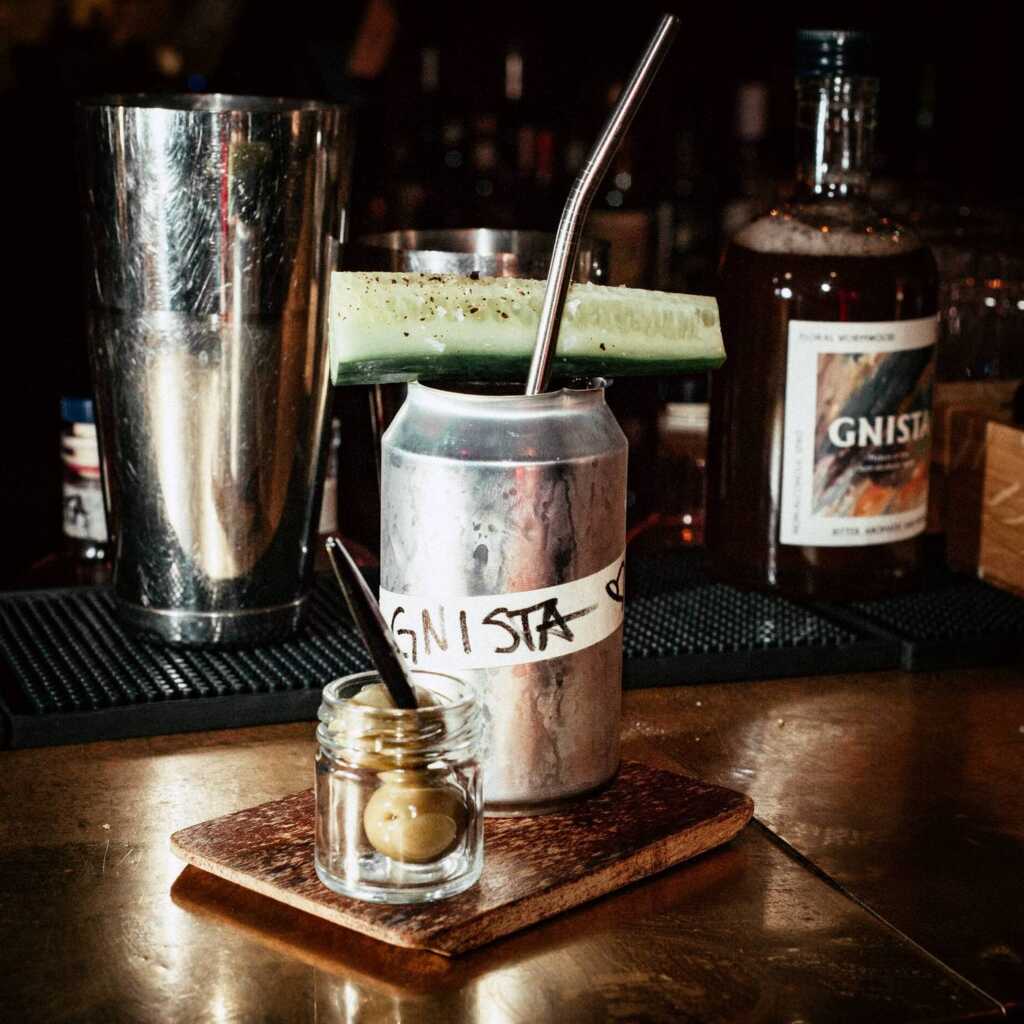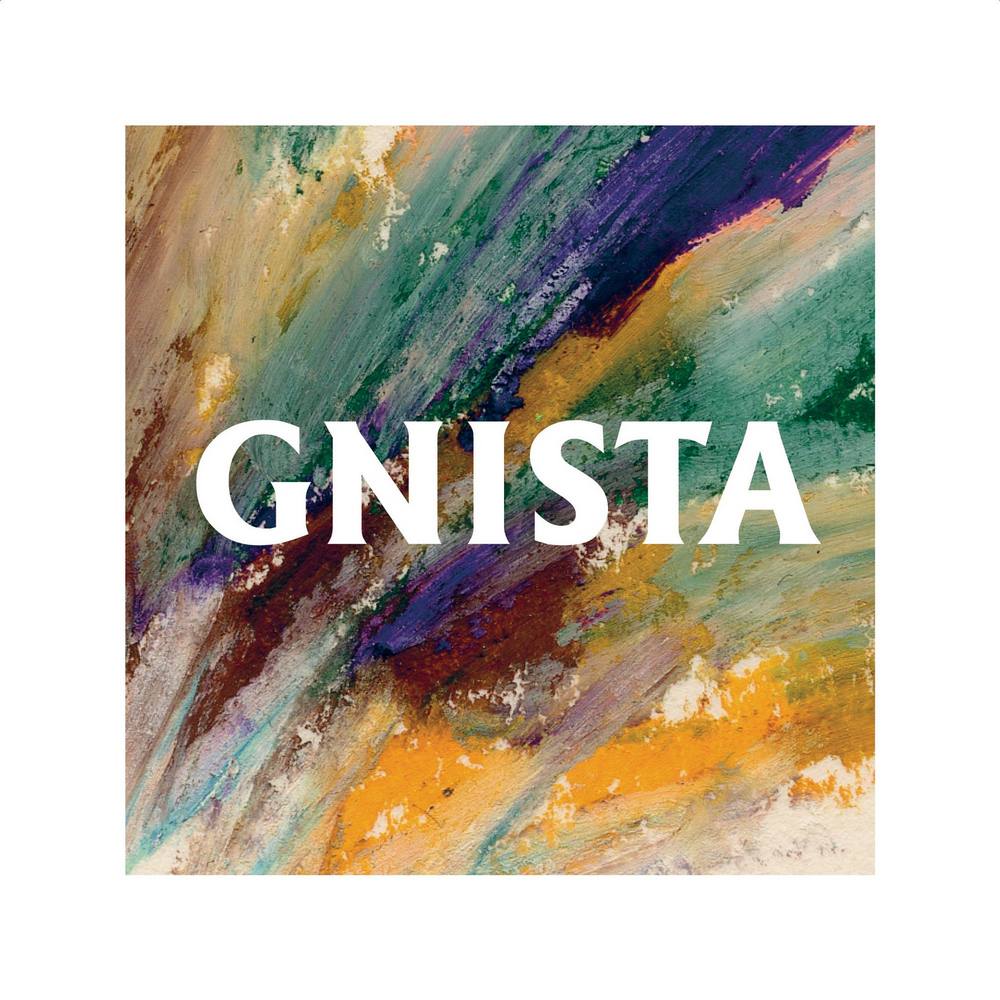In the world of non-alcoholic beverages, Gnista Spirits stands as a trailblazing company, redefining the boundaries of flavor and innovation. Founded by Erika Ollen, the brand offers a tantalizing alternative to traditional alcoholic drinks, promising a unique and sophisticated experience, minus the alcohol.
Erika’s journey into this industry is marked by a relentless pursuit of excellence and a determination to challenge the status quo. Her culinary background, combined with a penchant for creativity and an unwavering commitment to quality, has given birth to a brand that seeks to revolutionize the beverage market.
As such, Gnista Spirits isn’t just another player in the non-alcoholic market; it’s the embodiment of distinct complexity and gastronomic influence. Erika’s focus is to achieve flavor profiles that set the brand apart. Together with her team, she employs innovative techniques and uses select ingredients, with precision, to craft beverages that standout, in a league of their own.
Gnista Spirits is often referred to as the “next generation of non-alcoholic spirits.” This interview delves into the technological advancements and breakthroughs that are instrumental in creating this new generation of beverages. Erika sheds light on the interplay between cutting-edge technology and the culinary world, showcasing how these elements are reshaping the landscape of non-alcoholic options for consumers who seek premium experiences in the low- to no-alcohol (low/no) sector.
In the world of non-alcoholic beverages, Gnista Spirits stands as a trailblazing company, redefining the boundaries of flavor and innovation.
Furthermore, as Gnista Spirits expands its reach into international markets, particularly Japan, its innovative approach is poised to resonate with a culture that values tradition and innovation, in equal measure. And finally, Erika provides a glimpse into the customer favorites within Gnista’s diverse range, understanding what makes these products so beloved by consumers.
Motivation and Vision
Gnista Spirits stands out as a pioneering non-alcoholic beverage company. Could you share the personal motivation or inspiration that led you to venture into this industry and create a brand that offers an alternative to traditional alcoholic drinks? What is the overarching vision behind Gnista Spirits and its role in today’s beverage market?
My main drive has always been to improve and break new ground; and, as a person, I’m creative, determined, and restless. Food and cooking have been my main interests since early days, so this was a natural field of work. Back in 2015, when Seedlip was launched, I worked with another beverage for grown-ups. Naturally I ordered a bottle to try. And when a number of “me-too” brands followed Seedlip, offering “distilled, non-alcoholic gins,” my plans changed.
None of the early non-alcoholic spirits resembled the spirit as we know it: liquids that are challenging, with bite, complexity, and an intense roundness; from the nose to the lingering sensation long after you swallow the drink. Of course, those non-alcoholic spirits weren’t meant to resemble fine spirits or alcohol. They were brands conveying freshness, catering to the wellness crowd. They were meant to be botanical, soft on the palate, and, of course, free from calories. A little bit like “non-alcoholic spirits for beginners” — people who put health first and who finally found a good reason to opt out of alcohol yet still be socially acceptable.
But, I didn’t agree. I knew there was a big — and growing — crowd that cared about the drink experience, above all else. These are people who love to celebrate and hang out with friends over cocktails, but may want to skip alcohol (for the night or forever). There are so many reasons people may choose to opt out of alcohol, beyond just pregnancy and religion.
At the very center of the group, caring about the quality of the low- to no-alcohol cocktail, we find bartenders and mixologists. They are very much affected by the low/no trend, at least professionally, as requests for great tasting mocktails continue to grow. Gnista was born out of the sense that this group deserves something better, and out of my urge to challenge the status quo— in this case, what defines a “real spirit” and me disagreeing with the potential new definition of the category “non-alcoholic spirit.”

I launched Floral Wormwood (a vermouth substitute) in 2019 and Barreled Oak (a whisky/rum substitute) in 2020. The Red Not-Wines followed in 2022. The rationale for developing the Red line was similar to that of the spirits: simply de-alcoholizing a wine will never be satisfactory for a wine lover who chooses to not drink alcoholic beverages. The drink lacks soul. So, what’s the essence of a great red wine experience? For me, it has more to do with tannins, body, spice, tartness, and length than the fact that it’s made from fermented grapes.
Last year, Bloomberg identified Gnista as a key player in the growth of the low/no market, which shows that there’s room for transformation. Our company mission is to make it easier to choose non-alcoholic. And the vision is to (re)define the concept of spirits and wines. And, by doing so, becoming a long-term global leader.
Next-Generation Non-Alcoholic Spirits
Gnista Spirits is often referred to as the next generation of non-alcoholic spirits. Could you delve into the technological advancements or breakthroughs that have been instrumental in creating this new generation of beverages? How do you see the interplay between cutting-edge technology and the culinary world contributing to the evolution of non-alcoholic options for consumers seeking premium experiences?

I believe my background as a foodie, combined with my total lack of experience in the spirit-making and wine-producing fields, made me think of the liquids in new ways. I don’t care what ingredients are used, as long as they serve the purpose of creating the best possible drinking experience. Gnista is not rocket-science (even though we use the latest techniques where applicable) — it’s better compared to a delicious meal prepared by hand and in small batches: each ingredient is of the highest quality, serves a purpose, and the meal is treated in the best possible way.
There’s a clear distinction between the “gastronomic” zero-proof brands, the functional ones, and the “crowd-pleasers” (simply imitations just trying to fill that gap). The gastronomic ones are rarely copies of existing alcoholic beverages, but try to find their own path, for the long term.
To refer to Gnista as the “next generation’s spirits” has to do, to some extent, with the beverages, themselves. But it also has to do with the brand. Unlike other labels, we don’t talk about mindfulness, health, or calories. Instead, we challenge the bizarre relationship society has with drinking, whilst embracing the occasions at which those drinks are served. We have gathered around alcoholic drinks for thousands of years; and those moments will remain, as well, even as we move into a future where people all over the world will avoid alcohol to a greater extent. Our Red Not-Wines don’t taste exactly like wine, but they will do the job when you’re in a “red wine mood,” or at an occasion that calls for it.
Exploring International Markets – Japan
Expanding into new markets can be both promising and challenging. Given the rich cultural appreciation for beverages and gastronomy in Japan, how do you envision Gnista Spirits resonating with the Japanese market? What potential opportunities and unique obstacles do you anticipate when introducing your products to a market that values tradition and innovation, in equal measure?
Our success in all markets where we are present is, in great part, thanks to the competent local importing partners. I never decide on what market to enter, beforehand. But when I’m contacted by a company or team that has extensive experience, shares our love for craft, and has a thorough understanding of the role of non-alcoholic beverages, moving forward, then it’s potentially a good match. The Japanese, just like the Scandinavians, share the love for simplicity and quality; whether it’s to do with interior design, food, or drinks. So, it’s my hope and belief Gnista will be appreciated by “our kind of consumer” — people who like the challenging taste of alcoholic drinks, but who sometimes or always want to opt out of alcohol — also in Japan.
Customer Favorites
Among your diverse range of non-alcoholic spirits, do you have any particular products that have emerged as customer favorites? Could you share insights into what makes these specific products so popular, whether it’s their flavor profile, versatility in cocktails, or other unique attributes that have garnered a strong following?
In e-coms and regular shops, Barreled Oak is the most popular; likely because it’s the only whisky alternative on the market that’s recommended for straight consumption. Mixologists and bartenders prefer Floral Wormwood, since it’s so versatile for low/no cocktails. And the French and Italian Not-Wines complement each other well; we sell about 50/50 of those.









